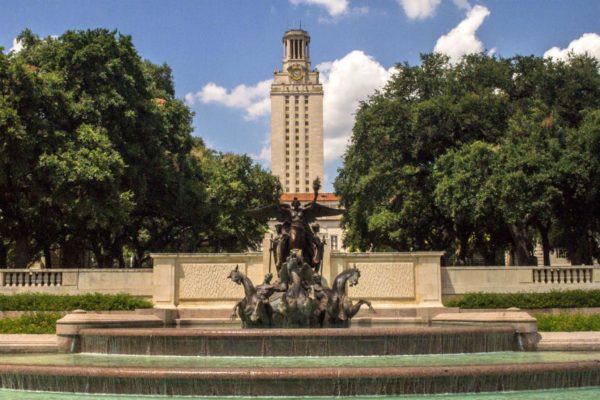Over the fall, millions of high-school students across the United States participated in the annual process of submitting college applications to attend the nation’s best schools. But sadly, only a small percentage of these applications will be from students who come from lower- and middle-income families. And that’s a problem.
While there’s no clear consensus about what policies help expand the middle class and create jobs in this era of massive technological change and global competition, there is one thing that Americans historically have agreed on: Education is the surest path toward upward mobility and prosperity. It is the engine that powers the American Dream.
Today, as presidents of two remarkable — though strikingly different —universities, we recognize that as a nation, we must do more to provide opportunity for promising students from low-income families to attend America’s best colleges and universities — public and private.
When these students miss out on a tremendous education, the nation misses out on their untapped potential as inventors, entrepreneurs, and leaders. This is why our universities have joined the American Talent Initiative, along with 86 other top public and private colleges and universities, to recruit, enroll, and graduate 50,000 additional talented, low- and moderate-income students by 2025.
Yale is a private research university in New Haven, Connecticut, enrolling fewer than 6,000 undergraduates. The University of Texas at Austin is Texas’s flagship public university with 40,000 undergraduates. Our two universities differ from one another because of who we serve and the scale at which we serve them. Yet our educational missions are the same — to produce transformative thinking, learning, and research for the benefit of all members of society.
Today, former UT Austin students from families in the lowest income quintile, on average, are earning close to three times what their parents earned annually — all by the age of 30. Yet many more students who could benefit are, for many reasons, not attending. In response, UT Austin announced that it would invest strongly in financial aid for low- and middle-income students, adding to a 2016 commitment of $15 million for middle-income financial aid.
Yale has long offered generous, need-based financial aid to low-income families. Parents of families earning less than $65,000 annually are not asked to make any financial contribution to their child’s Yale education. Tuition, room, board, books, and personal expenses are covered. Beginning next year, students from these families will also receive an additional $2,000 startup grant in their first year.
Even with supportive programs in place, many low-income students do not realize that a UT Austin or Yale education is within reach for them. To enable more talented students to consider our universities, our admissions offices have expanded outreach to students from lower socio-economic backgrounds and geographic regions where students are less likely to encounter peers applying to selective schools.
But simply getting students to college is not enough. Many students, especially those who are the first in their families to attend college or who come from low-income households, face additional obstacles once they arrive on our campuses. So, we are making sure these students have the resources and support they need to succeed and graduate once they are admitted.
Yale has pledged to enroll an additional 225 Pell Grant-eligible students and an additional 150 first-generation students over the next four years. These increases will be made by our current expansion of Yale’s undergraduate population by 15 percent and reaching out to students who may not otherwise apply to Yale.
UT Austin, through targeted mentoring and support efforts, has increased its four-year graduation rate by approximately 14 percentage points over the past five years. This has had a dramatic impact on the lives of many low-income students who previously would have struggled to graduate on time or at all. It has also created 1,000 extra spaces in each entering freshman class, providing more educational access to qualified students than ever before.
Regardless of our differences, Americans share a belief in the promise of equal opportunity and upward mobility. Education has long helped lift generations of young people, helping them achieve more than their parents could have ever imagined. By removing obstacles in the paths of low-income students, we can do our part to keep that promise alive.
The American Talent Initiative is a pledge and a path toward making that worthy goal a reality.
Gregory L. Fenves is president of The University of Texas at Austin.
Peter Salovey is the president of Yale University.
A version of this op-ed appeared in The Hill.
To view more op-eds from Texas Perspectives, click here.
Like us on Facebook.




